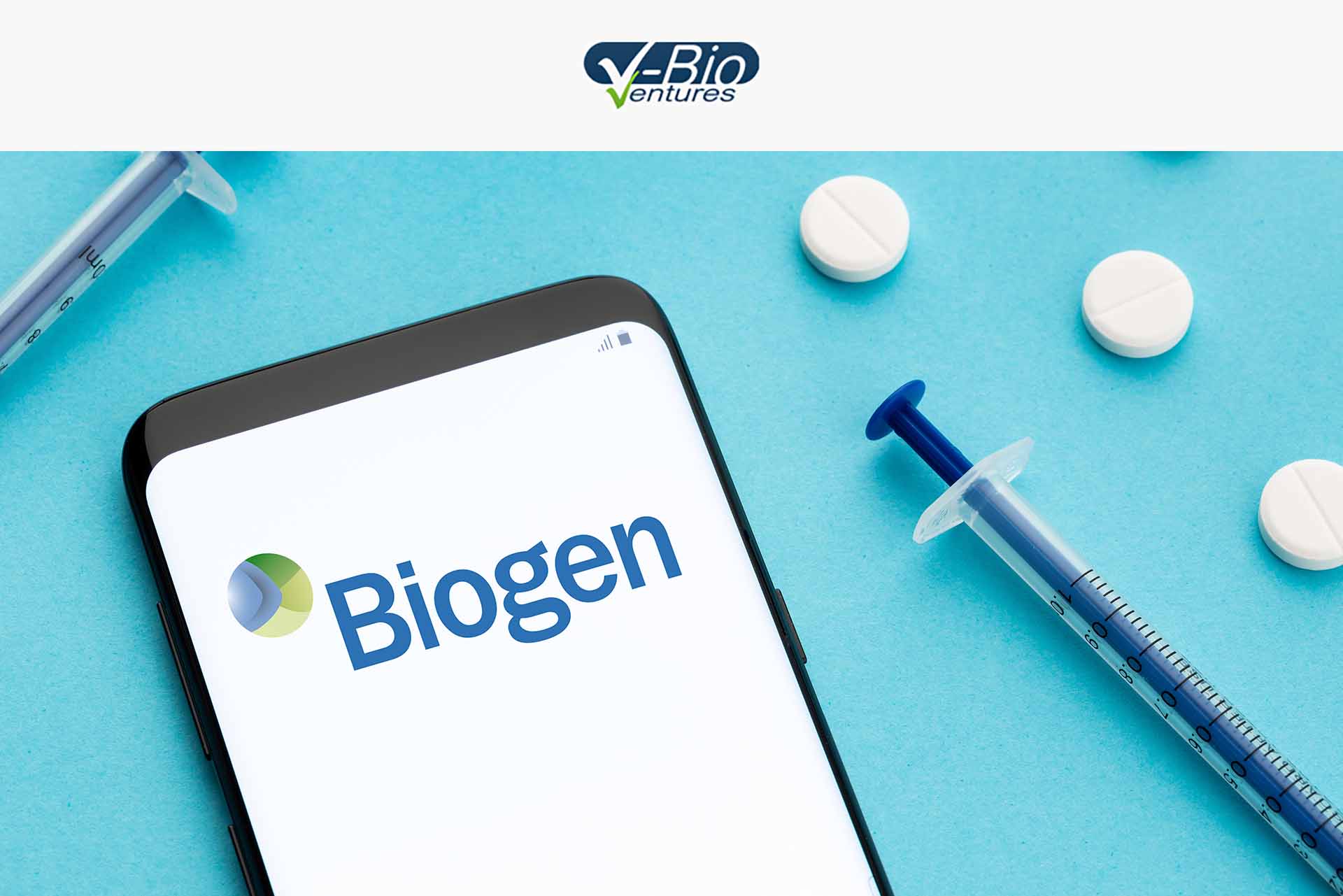Aducanumab – marketed as Aduhelm – is part of a group of monoclonal antibodies (including donanemab, lecanemab and gantenerumab), that target β-amyloid plaques. The drug aims to help Alzheimer’s Disease (AD) patients by removing these disease-related fibrils from the brain.
It was considered highly improbable that the company would be able to demonstrate that the drug resulted in a slowing of cognitive and functional impairment…
Three trials (PRIME, ENGAGE and EMERGE), performed in patients with mild cognitive impairment and dementia due to Alzheimer’s, showed that Aduhelm lowers β-amyloid plaques in a dose- and time-dependent manner. Even so, Biogen and its partner Eisai halted clinical testing after a futility analysis on interim data from two of the trials (ENGAGE and EMERGE) suggested they were “unlikely to meet their primary [clinical] endpoint upon completion”. In other words, it was considered highly improbable that the company would be able to demonstrate that the drug resulted in a slowing of cognitive and functional impairment, as measured by various cognitive tests.
Nevertheless, a few months later, Biogen claimed that a reanalysis of additional data from the EMERGE trial showed that the drug had achieved a “significant 22% relative reduction in clinical decline”— later supported by data from a subset of patients in the ENGAGE study. Biogen, at that time under high pressure due to its dwindling pipeline, pushed ahead and asked the FDA for approval.
A controversial decision
Despite none of the 11 members of the FDA´s advisory committee considering the drug ready for approval, the FDA decided to green-light Aduhelm under the Accelerated Approval Program. The argument was that there is “substantial evidence that the drug reduces β-amyloid plaques, and that this reduction is reasonably likely to predict clinical benefit” – a hitherto unproven hypothesis. In other words: the FDA approved Aduhelm based on a surrogate biomarker and is now expecting Biogen to bring clear evidence in post-approval trials that the biomarker and the clinical benefit indeed correlate.
With a price tag of $56 000 for a year’s treatment, Aduhelm could have a huge impact on the healthcare system if it were to be prescribed broadly.
There is strong genetic evidence that Aβ42 peptides, the main constituents of β-amyloid plaques, have a causative role in Alzheimer’s (at least in patients with familial AD, and probably also in non-familial cases). Having said this, whether the plaques are really the problem or rather a safe way to ‘store away’ toxic Aβ peptide variants, remains unknown. Following the FDA’s decision, three of the advisory committee members have resigned in protest.
Collusion behind closed doors?
Another aspect of the controversy was the FDA deciding on accelerated approval – it was surprising, given that this option was (at least officially) never discussed in meetings between the FDA and Biogen. Moreover, the FDA approval was initially not even limited to the patient population actually enrolled in the clinical studies and so far, pre-screening patients for the presence of plaques is not required and there is no guidance on how long patients should be treated or when to stop. This is alarming, especially considering the treatment can cause severe side effects in up to 44% of patients.
With a price tag of $56 000 for a year’s treatment, Aduhelm could have a huge impact on the healthcare system if it were to be prescribed broadly. Several health insurance providers and hospitals have already declared that they are not willing to prescribe the drug. The FDA’s approval nevertheless sent Biogen’s share prices skyrocketing. The many questions raised by the decision have led to suspicions about an “inappropriate close collaboration” between Biogen and personnel from the FDA – the head of the FDA has now called for an independent federal investigation into her own agency’s approval, which will be conducted by the HHS Office of Inspector General.
Read more about drug pricing in the article ‘How much do you charge for a lifesaving drug?’
Desperate times call for desperate measures
There’s no doubt that Alzheimer treatments – even just to delay the disease progression – are desperately needed. After a void of nearly 20 years, even a partially effective medicine appears as a silver lining on the horizon to many. But what will the outcome be of the Aduhelm decision?
In the most dreadful scenario, β-amyloid reduction will be routinely used to gain accelerated approval for unproved treatments. In fact, a couple of companies with similar antibodies have already announced that they will follow Biogen’s example. As it will take some time to clarify whether β-amyloid reduction actually predicts clinical benefit, this could result in several useless therapies on the market that put patients at risk and waste a lot of money.
Whether Aduhelm works or not, a greater flexibility of the FDA could be a game changer for biotech companies developing new treatments for Alzheimer’s and other neurodegenerative diseases.
On the other hand, this is the first time that the FDA has allowed an accelerated approval based on a surrogate endpoint in a neurodegenerative disease – the move could signal that the FDA might be more flexible in the future. Whether Aduhelm works or not, a greater flexibility of the FDA could be a game changer for biotech companies developing new treatments for Alzheimer’s and other neurodegenerative diseases.
Hope for the future
Up to now, it has been largely impossible for biotech companies to finance clinical studies with 5+ year durations and to demonstrate the impact of their drug on cognitive decline. If the FDA allows for surrogate endpoints and shorter trials, VCs would be better able to support companies developing both innovative therapies and predictive biomarkers.
In recent years, there has been huge progress made in the detection of Alzheimer’s biomarkers, including simple blood tests. This FDA approval of Aduhelm, problematic as it has been, may yet result in more new and innovative therapeutic approaches being tested in patients. Some of them will hopefully prove successful in delaying the onset or progression of this highly debilitating disease.


